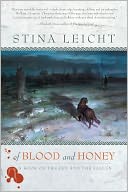When I registered for Worldcon, my goal was to read/watch/listen to ALL THE THINGS on the Hugo Ballot, and to review them as well. It was a good goal. A noble goal. A goal which, with less than a month until the July 31 voting deadline, simply ain’t gonna happen.
That said, I did get some reading done over the past few weeks, starting with the rest of the nominated novellas. (I reviewed the first three here.) Remember that both attending and supporting memberships give you voting rights and access to the Hugo Voter Packet.
#
 The Man Who Ended History: A Documentary, by Ken Liu, really stuck with me. Doctor Evan Wei, a Chinese-American historian, develops a form of time-travel technology that allows an individual to observe the past, but not to change or interfere. The catch is that any given moment of history can be seen only once, after which the Bohm-Kirino particles that allow you to reconstruct that moment are gone forever.
The Man Who Ended History: A Documentary, by Ken Liu, really stuck with me. Doctor Evan Wei, a Chinese-American historian, develops a form of time-travel technology that allows an individual to observe the past, but not to change or interfere. The catch is that any given moment of history can be seen only once, after which the Bohm-Kirino particles that allow you to reconstruct that moment are gone forever.
The story focuses on Unit 731, a Japanese biological and chemical research facility during World War II, in which thousands of people as many as 200,000 people, primarily Chinese and Korean prisoners, were killed in various experiments.[1. Ken emailed me to clarify that the number of prisoners killed in Unit 731 is unclear, but estimates are in the thousands. The 200,000 number is the lower estimate of people killed by biological weapons developed in Unit 731. My apologies for my mistake.] Dr. Wei’s goal – and Liu’s as well – is to bring to light the atrocities that were committed, atrocities which have been suppressed and ignored.
Liu documents his sources, citing various texts, testimonies, articles, hearings, and other accounts to support his story. And while the story of Wei’s efforts and the political and personal backlash is a good one, in the end I think it’s overpowered by the history lesson.
The science was, I felt, the weakest part of the story. Liu provided just enough detail about time travel to make me question it, and to erode my suspension of disbelief. But from a thematic perspective, particularly when it comes to the danger of erasing history, I thought it worked well. “We cannot avert our eyes or plug up our ears. We must bear witness and speak for those who cannot speak. We have only one chance to get it right.”
 The Man Who Bridged the Mist, by Kij Johnson, tells the story of Kit Meinem, an engineer and architect charged with building a bridge to connect the towns of Nearside and Farside. The river of mist that separates the towns is thick and dense enough to support boats, but it’s also home to dangerous fish-like creatures, some of which are enormous enough to destroy the ferries and their passengers.
The Man Who Bridged the Mist, by Kij Johnson, tells the story of Kit Meinem, an engineer and architect charged with building a bridge to connect the towns of Nearside and Farside. The river of mist that separates the towns is thick and dense enough to support boats, but it’s also home to dangerous fish-like creatures, some of which are enormous enough to destroy the ferries and their passengers.
The mist is fascinating, but it’s never fully explored or explained, and that works. The story isn’t about big flashy battles or the magic of the fantastic; it’s about the magic of Meinem’s bridge, the long process of construction and the ways in which that bridge will change the world. It’s a story that shows the triumphs and the costs of progress. Some of the costs are obvious, like the deaths among Meinem’s crew.
Others are subtler. Rasali Ferry is skilled at crossing the mist. She knows the dangers, but the mist is where she feels at home and at peace. Meinem’s bridge will put an end to her way of life, a fact she struggles to accept throughout the course of the story.
I liked this one as much for what it wasn’t as for what it was. Instead of big magic and effects, Johnson gives us Meinem’s love of engineering, his passion for his work, and the lovingly detailed process of building the bridge and changing the world. (And as a writer, I can’t help thinking about the bridge as a metaphor for stories.)
 The Ice Owl, by Carolyn Ives Gilman, is the most traditional story of the three. The city of Glory to God is described as a city of rust, a city of religious rule and corruption. In the opening pages, the Incorruptibles – the “army of righteousness” – enter the Waster enclave where Thorn lives and burn down a school. Thorn sets out and finds a tutor, a historian called Magister Pregaldin who turns out to be far more than just a teacher.
The Ice Owl, by Carolyn Ives Gilman, is the most traditional story of the three. The city of Glory to God is described as a city of rust, a city of religious rule and corruption. In the opening pages, the Incorruptibles – the “army of righteousness” – enter the Waster enclave where Thorn lives and burn down a school. Thorn sets out and finds a tutor, a historian called Magister Pregaldin who turns out to be far more than just a teacher.
I liked a lot of the worldbuilding and ideas in this one. Lightbeam travel means Thorn is 145 years old, at least by sequential time, due to time spent in transit. The titular ice owl is fascinating and symbolic and tragic, the last of its kind, hibernating in Pregaldin’s freezer.
Underlying the events of the story is the Holocide, a SFnal parallel to the Holocaust. Pregaldin deals in looted and lost artwork from that time. Thorn’s mother is seeing a man named Hunter, who pursues war criminals from the Holocide. As Thorn begins to suspect her tutor of being connected to the Holocide, she sets out to learn what role he played both then and now.
For some reason, this story didn’t quite come together for me as well as the others. I liked Thorn’s character: she’s smart, impulsive, and determined. I liked her investigation into Pregaldin’s past. I liked her family conflicts, her frustration with being the responsible one for her mother. But while there were a lot of great pieces, there were times they still felt like pieces instead of all fitting into the larger story. I’ve seen some very positive reviews of this one, so it might be a matter of taste, or maybe I just didn’t read it carefully enough.
#
So there you have it, the rest of the novellas. For those of you who’ve read them, what did you think?
—







 SUBJECT: Jim C. Hines is the author of seven novels and approximately 40 short stories. His 8th novel Libriomancer
SUBJECT: Jim C. Hines is the author of seven novels and approximately 40 short stories. His 8th novel Libriomancer 
 As a Hugo nominee, I think I’m required to do at least one reminder post that Hugo voting ends July 31. There’s now a countdown on the
As a Hugo nominee, I think I’m required to do at least one reminder post that Hugo voting ends July 31. There’s now a countdown on the  But there are always exceptions. Happily, my story with Geekomancy
But there are always exceptions. Happily, my story with Geekomancy  Of Blood and Honey
Of Blood and Honey 



 The Ice Owl, by Carolyn Ives Gilman, is the most traditional story of the three. The city of Glory to God is described as a city of rust, a city of religious rule and corruption. In the opening pages, the Incorruptibles – the “army of righteousness” – enter the Waster enclave where Thorn lives and burn down a school. Thorn sets out and finds a tutor, a historian called Magister Pregaldin who turns out to be far more than just a teacher.
The Ice Owl, by Carolyn Ives Gilman, is the most traditional story of the three. The city of Glory to God is described as a city of rust, a city of religious rule and corruption. In the opening pages, the Incorruptibles – the “army of righteousness” – enter the Waster enclave where Thorn lives and burn down a school. Thorn sets out and finds a tutor, a historian called Magister Pregaldin who turns out to be far more than just a teacher.